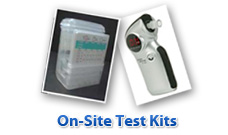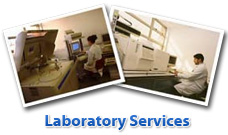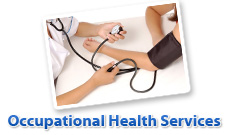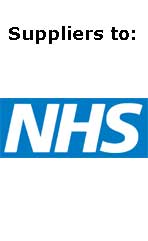Substance Abuse Awareness For Employers
Motivated by a desire to provide well-being, safety and health of workers, random substance misuse screening has come to be more and more common within the British Isles. Having said that, there are still numerous myths surrounding the strategy, that can produce worry amongst the personnel involved in screening.
Substance Abuse Awareness For Employers – So, where is the threat?
Most people suppose that the effect of controlled drugs in the average working environment is a very minor matter. Pretty much everybody has caught a glimpse of Christmas anti-drink-driving television campaigns and as a consequence, appreciate that drink-driving and drug-driving is hazardous, so can’t we depend upon the general public’s common sense? The sad thing is, close to fifty percent of all road and industrial deaths around the UK involve drink, drug abuse, or both together. Present-day available data prove that roughly 70% of drug users are engaged in full-time employment, suggesting that the average illegal drug abuser is, basically, the average employee. The latest Home Office information estimate the volume of 16 to 29-year-olds that have engaged in illicit drugs throughout the most recent year at a significant fifty percent. As a result, this should not be seen as somebody else’s issue, because it is relevant to each and every single working environment. Although the intermittent use of illicit drugs might not necessarily imply a tendency to ignore risks within the business, it does significantly increase the possibility of accidents and incidents, attendance and punctuality problems, a decrease in productivity, damages to machinery and wasted materials, being involved in a lawsuit and a significantly greater turnover of employees.
Substance Abuse Awareness For Employers – What do you suggest? Isn’t workplace drug testing rather complicated?
Many companies only perform an employee drug screen in the event of an injury or significant damage to property, an incident or near miss, or anytime they have reasonable grounds for concern that an employee is potentially unfit or unsafe for duty. Because of the broad cross section of potential risks associated with heavy industrial company premises, many companies view it as entirely reasonable to perform workplace drug screening on such occurrences, in order to prevent them occurring ever again.
On the other hand, random employee drug testing takes drug testing a stage further, whereby a certain percentage of the employees is randomly picked to volunteer a sample. This sounds a little intrusive, though it is quite customary for just 5% of the personnel to be tested up to once in every 12 month period. this is equivalent to just one in 20 individuals being drug screened, or maybe, as an employee, your likelihood of being subject to a test would probably be just a single time each 20 years. Incredibly, this style of minimalistic testing has actually been shown to lower rates of failure from as high as 46% down to as low as two percent within only a couple of months. This strongly suggests that the run of the mill substance abuser found within the average business isn’t addicted and unable to change, but is merely making lifestyle decisions which can possibly be steered towards a more positive end result.
Substance Abuse Awareness For Employers. Could this be viewed as a violation of human rights and civil liberties?
Whilst certain staff members are hesitant at first regarding the prospect of workplace screening, the majority of them recognise that this is primarily carried out in order to underpin the health and safety of everybody in the place of work. As long as the level of on-site drug screening is proportional to the risks inside the company and does not intentionally impact upon staff leisure activities, it doesn’t technically pose a danger to staff human rights. In the United States of America, more than 98% of the richest 1000 companies drug and alcohol test their members of staff without any difficulty.
Is there really any harm in using illegal drugs away from the workplace?
A lot of street drugs have indeed established a less dangerous image due to their continued exposure throughout the country’s magazines and newspapers. Indeed, expressions including “recreational cocaine use” can cause a great amount of harm due to it glossing over the risks to consumers. For a large amount of young people, the use of cocaine is much more addictive than heroin and, as a result can not be abused on a recreational basis without major risk of dependency. Addiction aside, cocaine purity has reduced from approximately 45 percent purity in 2004 to roughly 25 percent purity in 2010 (with purity at an all-time low of nine percent currently being reported). Even more worryingly, the added cutting agents used to increase the mass of the powdered cocaine range from dangerous anaesthetics, cancer-causing pharmaceuticals, dog worming agents, all the way through to to cockroach insecticide. The underlying message is that you can certainly never rely upon a drug dealer.
Indeed, substances usually considered to be soft drugs frequently still carry dangers. In recent years in the UK, a shocking 92% of everyday people taken in for treatment for mental illness are regular users of cannabis. With this in mind, on-site drug testing realistically possesses the realistic potential to attack wider antisocial and mental health problems as it eventually becomes more widely implemented.
Discover more about employee drug screening plus home drug test kits, see www.drug-aware.com
About the author: Christopher Evans is the Technical Director of Drug-Aware Ltd, a supplier of Substance Abuse Awareness For Employers, alcohol and drug testing kits, lab services together with drugs and alcohol awareness education. He has educated literally thousands of delegates across hundreds of businesses, Her Majesty’s Prison Service, the British police and hospitals throughout the UK.








